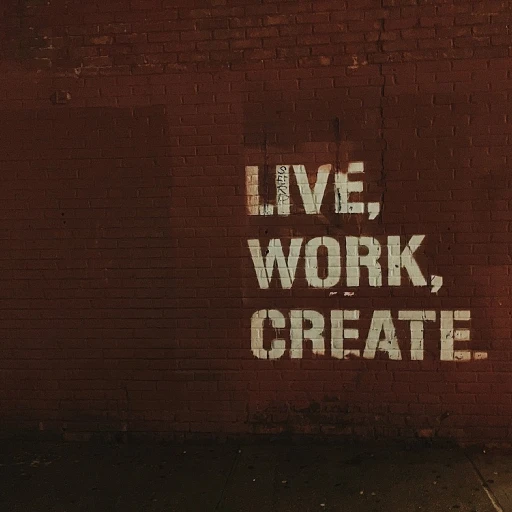
Understanding Background Checks
Decoding the Dynamics of Background Checks
In today's job market, background checks have become a vital part of the hiring process. Employers employ these checks to ensure a comprehensive understanding of a candidate's professional and personal history. This process involves evaluating various aspects such as employment history, criminal records, credit reports, and more. Understanding the nuances of background checks is crucial for both employers and candidates. For employers, it's about ensuring they hire the right person for the job by verifying candidate credentials and assessing any potential red flags. Employers typically conduct background screenings to confirm the accuracy of an applicant's employment history, examine criminal history, review credit reports, and even assess a social media background. On the flip side, candidates need to be aware of what employers look for in these checks to better prepare for the scrutiny they bring. Employment background checks often include reference checks and employment verification processes, sometimes delving deeply into the details of previous employers. They are not just meant to affirm qualifications and work experience, but also to spot inconsistencies or red flags that might surface, such as discrepancies in employment claims. These checks can vary widely based on the role and industry, with some positions requiring more rigorous scrutiny. For example, positions that involve sensitive data or financial responsibilities might necessitate more thorough credit reporting and criminal records checks. Understanding employment verification processes, like those used in specific sectors such as rideshare services, can provide valuable insights into how these checks work in practice. If you're interested in how employment verification is undertaken for specific roles, such as Uber drivers, you can learn more about it in this detailed understanding employment verification for Uber drivers guide.Employment History in Background Checks
Role of Employment Verification in Hiring
In the hiring process, employment background checks play a vital role in ensuring a candidate's claims align with their actual work history. Employers utilize these checks to confirm the employment history provided by candidates, helping to form a complete picture of a candidate's professional journey.Employers typically leverage various methods to conduct these checks, such as speaking directly with previous employers or reviewing official employment records. This practice helps to confirm job titles, roles, duration of employment, and reasons for leaving previous positions. Doing this verification helps employers avoid situations where a candidate might exaggerate their experience or qualifications, which could lead to potential red flags.
Beyond simply matching job roles, conducting thorough employment history verification can also reveal crucial insights into job performance, success in previous roles, and even interpersonal skills. For instance, reference checks often allow employers to gauge a candidate's previous contributions and work ethics more thoroughly.
To explore more about the importance of employment history verification, you can learn detailed insights at Unveiling the Importance of Employment History Verification.
Moreover, it is not uncommon for these background checks to integrate other aspects such as criminal records and social media background checks to ensure that the candidate is a fit for the organization's culture and legal requirements. However, employers need to carry out these checks within the legal framework, respecting candidates' privacy and rights.
Trends in Background Check Practices
Emerging Patterns in Background Check Procedures
The realm of background checks is continuously evolving, with newer practices emerging in order to adapt to the shifting landscape of employment and technology. One notable trend is the increasing use of social media background checks. Employers are leveraging social media platforms to glean additional insights into potential candidates’ social behavior and personality traits, possibly spotting red flags that traditional methods might miss. Another trend is the heightened emphasis on thorough employment background screening. Verifying a candidate’s employment history has become more critical, as employers seek to ensure that the information presented by the candidates aligns with the facts. The inclusion of detailed employment history checks aims to provide transparency and trustworthiness in the hiring process. Additionally, there’s a growing dependence on modern technology and software solutions to streamline and enhance the employment verification process. This is part of a broader trend in which employers are adopting automated systems for efficient data collection and verification. While this has advantages, it also raises concerns regarding the accuracy of automated checks and potential biases. Moreover, employers are increasingly incorporating credit reports into the screening process, especially for roles that involve financial responsibilities. According to Background Check Trends, understanding the impact of credit scores in background checks is vital to assess a candidate's financial responsibility. The prominence of criminal records checks remains significant in background screening practices. Employers wish to ascertain any potential criminal history in order to mitigate risks associated with hiring individuals who may pose a liability to the organization. All these trends reflect a growing emphasis on comprehensive background checks, intended to thoroughly verify candidate records before finalizing hires. While effective in some cases, these trends present their unique challenges that job seekers should be aware of, especially concerning privacy and accuracy. Thus, understanding these changes can better prepare candidates for what to expect in the current hiring landscape.Challenges in Verifying Work History
Obstacles in Confirming Work Experience
The process of verifying employment history in background checks often faces several hurdles, which can impact the accuracy and comprehensiveness of the information obtained.- Inconsistent Record Keeping: Past employers may not maintain precise records, making it difficult to validate a candidate's previous positions and employment dates. Inconsistencies in records can raise red flags and complicate the verification process.
- Closed Businesses: When companies shut down, accessing employment records becomes nearly impossible. This challenge is common when an applicant's past employers no longer operate, leading to gaps in verification.
- Changes in Employment Laws: Legal considerations and jurisdictional differences can limit the extent to which previous employers disclose information. This is especially true for roles with sensitivities surrounding criminal records or personal conduct.
- Employer Reluctance: Some employers might be hesitant or legally restricted from sharing extensive details during employment background checks due to privacy concerns. They may only confirm basic information like job titles and employment tenure without delving into performance or behavioral insights.
- Reliance on Third-party Screening: Job screening often involves third-party agencies, which may not always fully bridge communication gaps between past employers and potential future employers.
Legal Considerations
Legal Factors to Consider in Background Screenings
Navigating the legal landscape of background checks, including employment history, can be complex for both candidates and employers. Understanding the relevant laws and regulations surrounding the hiring process is essential to ensure compliance and avoid potential pitfalls.- Fair Credit Reporting Act (FCRA): Enforced in the United States, the FCRA governs how background checks, particularly from consumer reporting agencies, should be conducted. It mandates that employers must obtain written consent from candidates before conducting a background check and inform candidates if any adverse action is taken based on the report. This includes checking employment background, credit reports, and criminal records.
- Ban-the-Box Laws: Growing in popularity, these laws restrict when employers can ask candidates about their criminal history during the hiring process. The goal is to eliminate discrimination and provide candidates with a fair opportunity based on qualifications and experience. Employers must familiarize themselves with local and state laws, as they vary across regions.
- Data Protection Regulations: Regulations like the General Data Protection Regulation (GDPR) in the European Union place strict requirements on how personal data, including social media and employment history, can be collected, stored, and processed. Employers need to establish transparent data practices and obtain necessary consents.
- Equal Employment Opportunity Laws: These laws prohibit discriminatory practices in hiring based on race, gender, age, and other protected categories. Employers must ensure their background screening processes are equitable and do not result in unfair bias against any group of candidates.
Tips for Job Seekers
Guidance for Job Seekers on Navigating Background Checks
Navigating through the employment screening process can feel daunting, especially considering the aspect of background checks. Here are some tips to better position yourself during the hiring process:- Understand the Screening Process: Familiarize yourself with the elements of background checks, which can include employment history verification, credit reports, and even social media background checks. This understanding will empower you and reduce anxiety about what's expected.
- Verify Your Employment History: Ensure consistency and accuracy in the employment history information you provide to employers. Discrepancies between your resume and what previous employers report can be red flags, so it's crucial to cross-check these details.
- Be Prepared for Reference Checks: Organise a list of professional references who can vouch for your work ethic and employment background. Notify them in advance so they’re prepared when potential employers reach out.
- Check Your Own Reports: Regularly verify your own credit and criminal records to ensure they reflect accurate information. This preparedness will help you address any inaccuracies before they become issues in your job application process.
- Leverage Social Media Wisely: Be mindful of your online presence. Employers often check candidates’ social media to gauge character and potential red flags. Display professionalism across your platforms.
- Know Your Rights: Familiarize yourself with legal considerations regarding employment screening. Understanding your rights can protect you from any unethical checks and processes.













